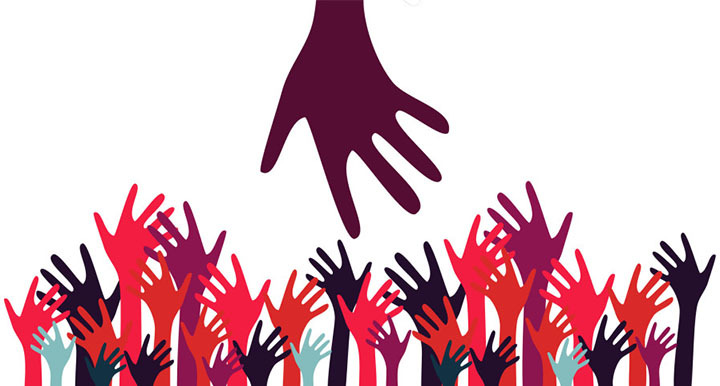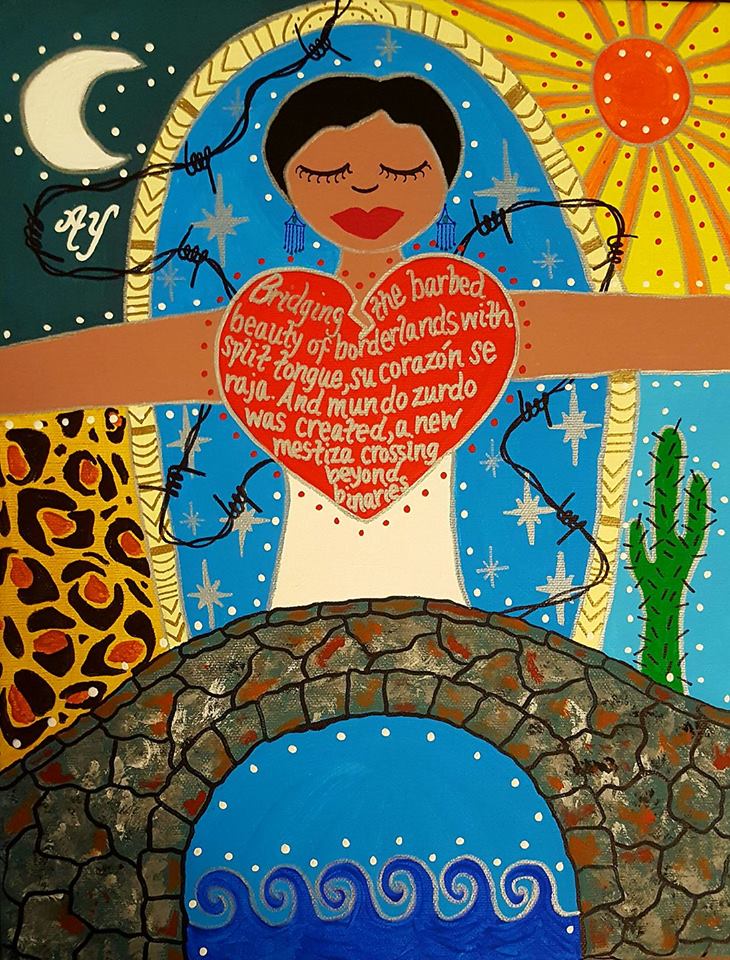
“Each one of us here is a link”
–Audre Lorde
Filled with love, our greatest tool is the ability to look across the border, acknowledging its existence, and into the eyes of another person. I ask you to teach me what the border means for you; I will teach you what the border means for me, and we will, together, recognize how we are linked across and beyond it. In that moment, the border begins to shift.
This is love; more than sympathy, more than compassion, more than solidarity, this is responsibility to another individual. This is the “slow, attentive mind-changing (on both sides), ethical singularity that deserves the name love,” a commitment to see, understand, and change the world—and ourselves— together.
To be a feminist is to be attentive. To be a feminist is to change one’s mind. To be a feminist is to be responsible to one another, to listen and to question, to learn and to teach, to criticize and to celebrate. To be a feminist is to refuse the comfort of our own borders and to struggle together to make the borders shift.
Such responsibility can be painful, exhausting, and can seem hopeless. Manissa McCleave Maharawal from Occupy Wall Street writes, in response to the first draft of the Declaration of Occupation:
“Let me tell you what it feels like to stand in front of a white man and explain privilege to him. It hurts. It makes you tired. Sometimes it makes you want to cry. Sometimes it is exhilarating. Every single time it is hard. Every single time I get angry that I have to do this, that this is my job, that this shouldn’t be my job. Every single time I am proud of myself that I’ve been able to say these things because I used to not be able to and because some days I just don’t want to.”
We, too, are called to talk about privilege, starting with our own. We are called to argue and to question, even when it hurts. And we are called to love so fiercely that we keep trying.
“No matter how hopeless that undertaking might seem,” and no matter how exhausting it can be to pry open a tiny crack in the border with your fingers, this is what love asks of us. When we love, we notice even the smallest of blessings, every shift in which “words…blades of grass” can push through.
To challenge the borders through love is to recognize that no matter how small the shift, it is seminal; no matter how hopeless or painful a moment, there is the possibility for transcendence.
(Image Credit: Huffington Post)
